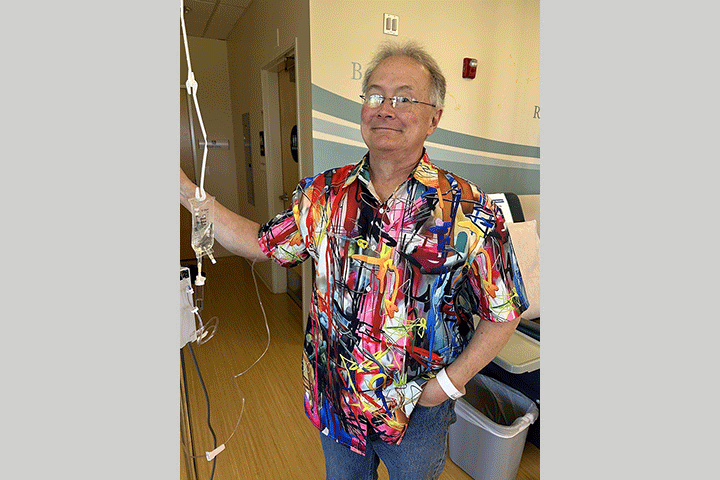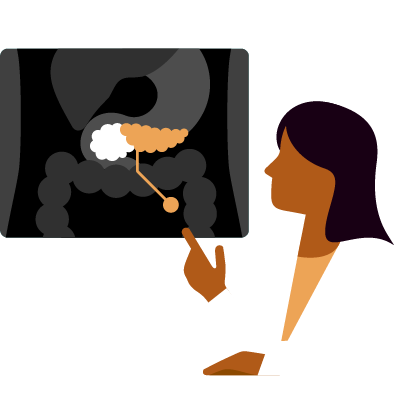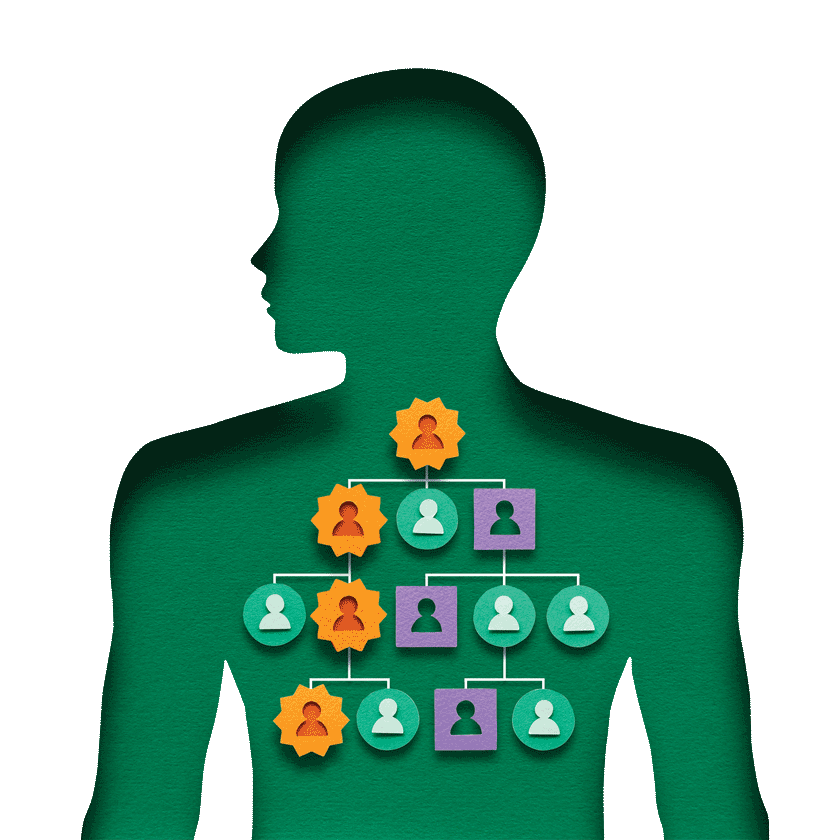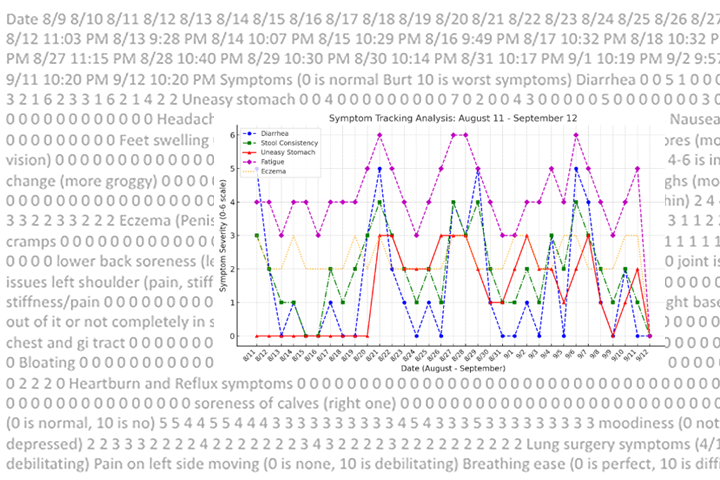Top 10 Tips and Tricks for a Better Chemo Experience
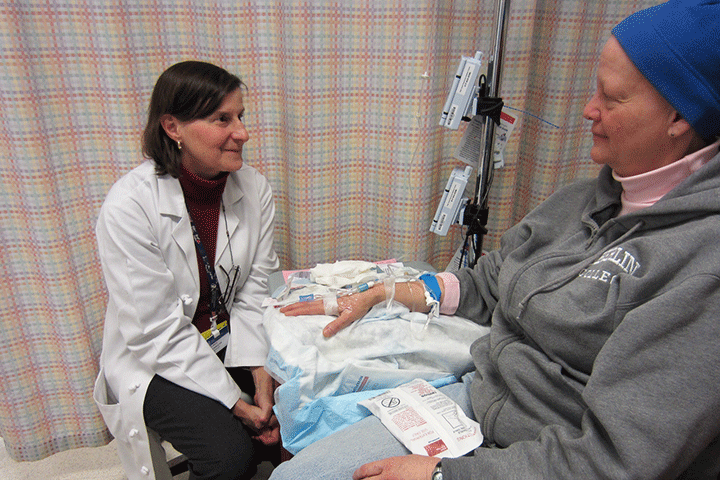
When it comes to navigating cancer treatment, your doctor charts the course—but it’s often the nurses who guide you through the day-to-day journey.
With their hands-on experience and deep understanding of what patients really need, nurses are a goldmine of practical advice.
Tips From Experts
We asked these frontline experts to share their most helpful tips and tricks for making chemotherapy a little more manageable—and a lot more comfortable.
1. Be prepared
Don’t wait until the first day of chemo to get everything done. Depending on how your medication is administered, you may need a catheter or port at the injection site. It is often possible to get this set up before treatment begins.
You may also want to do a wig consultation before treatment, if you are worried about losing your hair and wish this to be an option if you do. That way, you may be able to match it to your natural hair color.
2. Protect yourself
You will want to avoid any infections while undergoing treatment, so be extra diligent with maintaining good hygiene. Be careful not to cut or nick yourself when using scissors, needles, or knives. This also means putting off those manicures and pedicures. Avoid yard work (or wear thick gloves) due to potential contaminants in the soil, and if possible, get someone else to clean up after any pets.
3. Protect your family
The point of chemo is to kill your cancer cells, but you don’t want to risk killing the healthy cells of those around you. To avoid any chemo contamination around the house, especially within the first 48 hours after treatment, use a dedicated bathroom if possible. If a separate bathroom is not feasible there are a number of precautions to take.
- Shut the lid and flush twice every time you use the toilet, even when just urinating. If there is residual after the first or second flush when stool is involved, flush a third time.
- Make sure to use sanitizing wipes to disinfect the toilet seat and rim after use.
- Make sure to wash your hands with soap and water before touching other surfaces.
- Then, at the end of the 48 hours, the toilet and bathroom floors should be cleaned.
You may also want to wash your clothes and shower immediately after chemo, as well as change sheets daily so that any chemotherapy coming out of your pores doesn’t contaminate the bedding. Bed linens, clothes, and towels can be washed as usual unless they are contaminated by chemo or bodily fluids. If these items are contaminated, wash the linens separately from other laundry. Contaminated clothes, linens, and towels should be washed with detergent twice in hot water.
Use heavy duty gloves and cleaning products when handling contaminated surfaces or laundry.
It is suggested to refrain from sex for the first 48 hours after chemo. After that, practice safe sex. The bodily fluids exchanged during sex could lead to chemo contamination, so protect your partner by using condoms or other forms of barrier contraception. It could also protect future family members, as it is still possible to conceive while undergoing treatment.
4. Watch what you eat
Avoid shellfish and raw or unpasteurized products like sushi, deli meat, and some soft cheeses (like brie and camembert). Opt for frozen berries in shakes and smoothies rather than fresh. Aim for a healthy diet full of fruits and vegetables, but it’s also okay to lean into cravings when you have the appetite. Probiotic or probiotic and yogurt drinks such as DanActive (Actimel), Yakult, or supermarket brands should not be consumed while you are having chemotherapy.
Avoid takeout foods, since you don’t know how clean the kitchen is. And don’t reheat ready-to-eat meals. Make sure all food is cooked thoroughly and is piping hot before serving.
Diabetes patients should also be aware that their blood sugar levels might be affected by treatment. The steroids often given during chemo may cause blood sugar levels to become high, for example. If you are an inpatient, it is important to tell the staff that you have diabetes, so they can offer you a suitable diet from the hospital menu. You may also want to consult a dietitian or other member of your care team about additional strategies.
Learn more about balancing blood sugar during and after treatment.
But remember, “Eat what you can, when you can. Now is not the time to diet,” recommends Marci Andrejko, D.N.P., A.P.R.N., F.N.P.-C. Nurse Practitioner, Memorial Sloan Kettering Cancer Center (New York City)
5. Nausea relief
For quick relief, try tearing open an alcohol wipe and sniffing it. Also, consider taking nausea medications before you have symptoms in order to avoid it altogether. Ginger tea, peppermint tea, and cold foods can also help, and avoid heavy meals directly before and after treatment. If the scent of peppermint helps relieve your symptoms, consider dipping gauze or another wick into essential oils rather than using a water-based diffuser, which could circulate mold or bacteria.
6. Drink up!
Water isn’t just hydration: it’s medication for your kidneys, and crucial while undergoing chemo! The goal is two quarts per day. This can be a challenge, especially when you are struggling to swallow those handfuls of pills and when water seems to quickly fill up your shrinking stomach. Consider adding protein shakes to your regimen. Not only do they count towards your hydration goal, they contain nutrition which may be hard to come by when your appetite is low.
7. Ice, ice baby
Neuropathy (tingly sensation and pain in fingers and toes) and cold sensitivity are common side effects of the chemotherapy agents commonly used to treat pancreatic cancer, including oxaliplatin and paclitaxel. A simple solution for neuropathy that many nurses swear by: using ice during treatment. This could include sucking on ice chips or sipping cold drinks during infusions, dunking hands and feet in ice water, or sporting ice booties and gloves.
Learn more about the science behind it.
8. Take care of those pearly whites
Prior to starting chemo, have a thorough dental exam and cleaning, then keep up with care by brushing with a soft brush and rinsing thoroughly with water or a salt-based mouth rinse, to target dry mouth. You can make a saline wash with a pint of cooled boiled water and a teaspoon of salt. Alcohol-based rinses can make dry mouth worse, and their use is not advised.
Flossing or using a Waterpik is not recommended because they can irritate your gums or mouth, and potentially cause an infection. And if changes in your sense of taste mean you can no longer tolerate mint toothpaste, consider switching to other flavors, such as cinnamon.
The bacteria in your mouth may change during treatment, putting you at risk of “chemo cavities,”as well as dry mouth, sores, and sensitive teeth. Luckily, there are many affordable products available to help, including disks that promote overnight salivation and prevent too much bacterial buildup. Ask your nurse or pharmacist.
9. Take care of your scalp and skin
Lather up with sunscreen, lip balm, and lotion all day. Not only do you want to avoid dry skin, you also want to prevent cuts, scrapes, and split lips so you’re not risking the introduction of bacteria into the bloodstream. Some types of chemotherapy, as well as other medications given during chemo, can make your skin more sensitive to the sun. Try to avoid too much exposure, sit in the shade when possible, and always wear a hat.
If the chemo causes you to lose your hair, your scalp may begin to feel tingly or painful. Take simple painkillers such as acetaminophen if needed. If the skin on your scalp becomes dry and itchy, using a plain moisturizing cream can help.
10. Ask questions
Some common supplements and herbal remedies can interfere with cancer treatments. Tell your doctor about any supplements you may be taking, such as vitamins, garlic capsules, cod liver oil, echinacea and St. John’s wort, and ask whether you should stop taking these while you are having chemotherapy.
Keep a pen and paper on your bedside table to write down any questions that come to you in the middle of the night. And don’t be afraid to ask them the next time you meet with a member of your medical team. Respectfully interrupt if needed.
Get more great advice from long-term pancreatic cancer survivor Steven Merlin.
